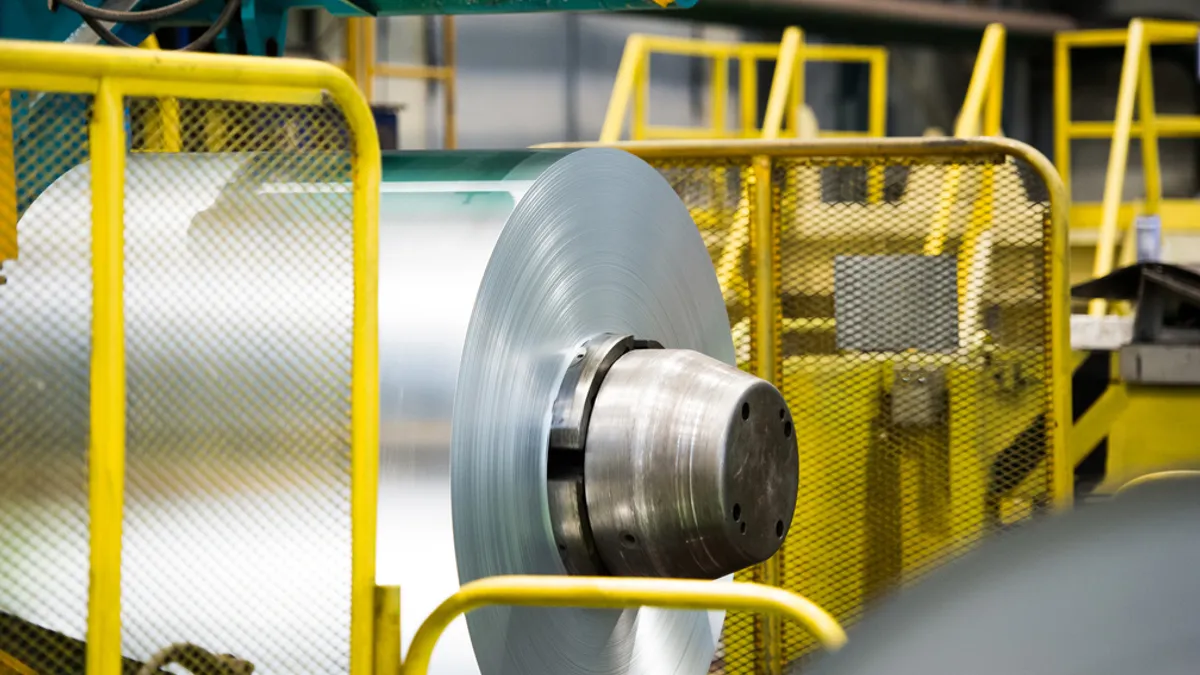UPDATE: June 7, 2018: This article was updated to include a link to the full list of tariffs released by Mexico's government.
Dive Brief:
- U.S. allies sharply criticized the country's decision to impose tariffs on steel and aluminum imports from Canada, Mexico and the European Union, promising to retaliate against a slew of U.S. products. Canadian Prime Minister Justin Trudeau called the tariffs "unacceptable."
- Canada's Department of Finance said it will impose C$16.6 billion (USD $12.8 billion) of tariffs on goods ranging from soy sauce to felt-tipped pens as of July 1. Mexico will levy tariffs on steel and several food products, such as pork and grapes.
- European Commission President Jean-Claude Juncker said "today is a bad day for world trade," while affirming the EU would impose counterbalancing measures and start a case in the World Trade Organization. Its list, released previously, would consider tariffs on Levi's jeans and bourbon.
Dive Insight:
Just a week ago, U.S. businesses may have thought they could breathe a sigh of relief, as the U.S. and China hit pause on an impending trade war.
But now, global supply chains are seeing some of their worst fears realized as the U.S. spins itself into a trade war with its closest allies and biggest trading partners.
Canada is the United States' second largest trading partner (China is first), with the two countries exchanging $582.4 billion dollars in 2017. Mexico is a close third, trading $557 billion with the U.S. last year. EU nations, including Germany, France, Italy and the Netherlands, are among the top 15 trading partners.
Canada and Mexico's retaliatory tariffs on steel could prove particularly damaging to the U.S. steel industry. Mexico is the main buyer of aluminum and second largest buyer of steel from the U.S., the country said in a tweet in Spanish. In addition, Canada imported more than half of its steel from the U.S. last year — a figure that's likely to shrink if 25% import taxes persist.
American manufacturers will see higher costs for their raw materials, the Chamber of Commerce said. "U.S. steel prices are already nearly 50 percent higher than those in Europe or China, and aluminum prices have been extremely volatile; this move would add substantially to these challenges," Myron Brilliant, executive vice president and head of international affairs for the chamber, wrote in a post.
While President Trump's intention with tariffs may have been to boost job growth in the U.S., tit-for-tat trade measures could have the opposite effect and threaten 2.6 million American jobs. Aside from manufacturing, tariffs will likely affect the agriculture industry, as both China and Mexico listed tariffs on numerous food products.
The tariffs also don't bode well for ongoing North American Free Trade Agreement (NAFTA) negotiations. Economists with Goldman Sachs said the U.S. decision to impose tariffs "suggests that prospects for a NAFTA agreement in the near-term are fading."














